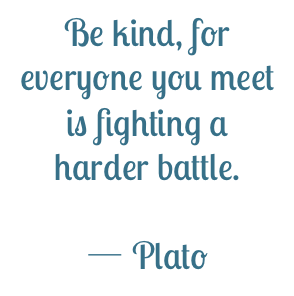A question that sometimes drives me hazy:
am I or are the others crazy?
― Albert Einstein
As surely as the sun rises in the east, someone will get on your nerves today.
The degree to which they do will be in direct proportion to the amount of stress, anxiety, or other negative emotion you’re experiencing.
This week, I let someone throw me off course. I let them them negatively influence my thoughts and outlook. I hate it when that happens!
It took me by surprise, because I’m usually good at managing that kind of thing. So I went back to the basics.
Instead of pondering what was wrong with them (!) as I was wont to do, I shifted my focus and changed up the questions I was asking myself. Sometimes it’s not about the other person. It’s about what’s going on with me.
Wait, it’s pretty much always about what’s going on with me! Taking a moment to step back and ask a different set of questions often makes a lot more sense. And brings much needed relief.
If others drive you crazy during the day, step back and ask questions that can give you a better perspective. Perhaps you will find relief, too.
5 Questions to Ask When People Drive You Crazy
1. What’s going on with me that I’m reacting this way?
If I’m tired, stressed, feeling overwhelmed, hungry, or sad, I’m usually not giving my best. And I’m less able to see irritating things for what they are; simply irritating.
Instead, I blow them up into bigger than life versions of themselves.
So the first question is to find out what’s going on with you.
2. What are the real facts here, versus the assumptions I’m making?
I can’t tell you how many times this question has saved my bacon from overreacting in a way I’d regret.
Did you ever “scan” an email and start composing an angry response before you really understood it? I have! Thankfully I know to take a breath and go back and read it carefully!
Or maybe you are sure that guy at work is “out for you.” I mean really, is that a fact? Do you really know that?
A woman in a workshop once said, “My boss hates me.”
I said, “Really? Has he told you he hates you?”
“Well, no.”
Well that’s a broad assumption. And every day when she goes to work, she’s making decisions about how she’ll behave – and feel about herself – on that awful assumption.
There are so many reasons people behave the way they do. Their perspectives may be a world away from your own. And you can not know that unless you ask.
If you’re going to spend your energy responding to an event, or a pattern of behavior, make sure you have the facts.
3. What judgments am I holding about this person, and what can I do to let them go?
We are constantly and silently judging others all the time. It’s just something we do as humans.
When my stress inducing needs to be right, better, or smarter show up, judgment rears its ugly head. I want to ease whatever pain I’m in at the expense of other people. Not cool.
I’ve learned to recognize this. And by shining a light on my judgmental thoughts I can kindly coach myself to redirect my thinking.
4. What can I do to help this person?
I read a blog recently that said if we made “help this person” our daily mantra, it would transform our careers.
I suspect it would transform more than that!
When people drive you crazy, ask yourself: What can I do to help this person?
5. How can I hold this person in a space of compassion?
Listening without the impulse to rebuke, respond or judge can be the hardest thing.
When others are upset, or their perspective is foreign (read: disturbing) to me, sometimes the best strategy is patience and understanding.
Every point does not need a counterpoint.
Every disagreement does not need to be debated.
Every inflammatory comment does not demand an equivalent response.
I try not to take everything personally. And it certainly doesn’t imply we agree. It just means I’m holding them in a space where I can let go of the judgment, anger, or resentment, and keep moving forward.
There’s usually more to a story than what we see, and interpret.
Creating a space of compassion in which to hold that person will help, even though it can often be the hardest thing to do.
At the very least, you’ll feel better.
Image: https://www.123rf.com/stock-photo/


DarcieHarris Thanks for the shout out Darcie! Loved your site. Are you planning big fun this weekend?
LeaMcLeod Right on! When I think others are driving me crazy, it’s usually my Evil Twin having a tantrum. 🙂
IJerih I understand, and completely relate…. those nasty twins.
LeaMcLeod you’re welcome. Great post!
LeaMcLeod You’re welcome Lea. Nothing big planned, just catching my breath. You?
Great post, Lea. You definitely gave me food for thought. Think I’ll try not to be so judgmental this week.
@TheWomanEffect LeaMcLeod Thanks Dana! Glad you liked it.
DebraBeyond Hey Debra, that’s a good goal I think. It often adds more stress than we expect! : )
LeaMcLeod thank u! 🙂
NikkiLA22 My pleasure! Thanks for connecting up!